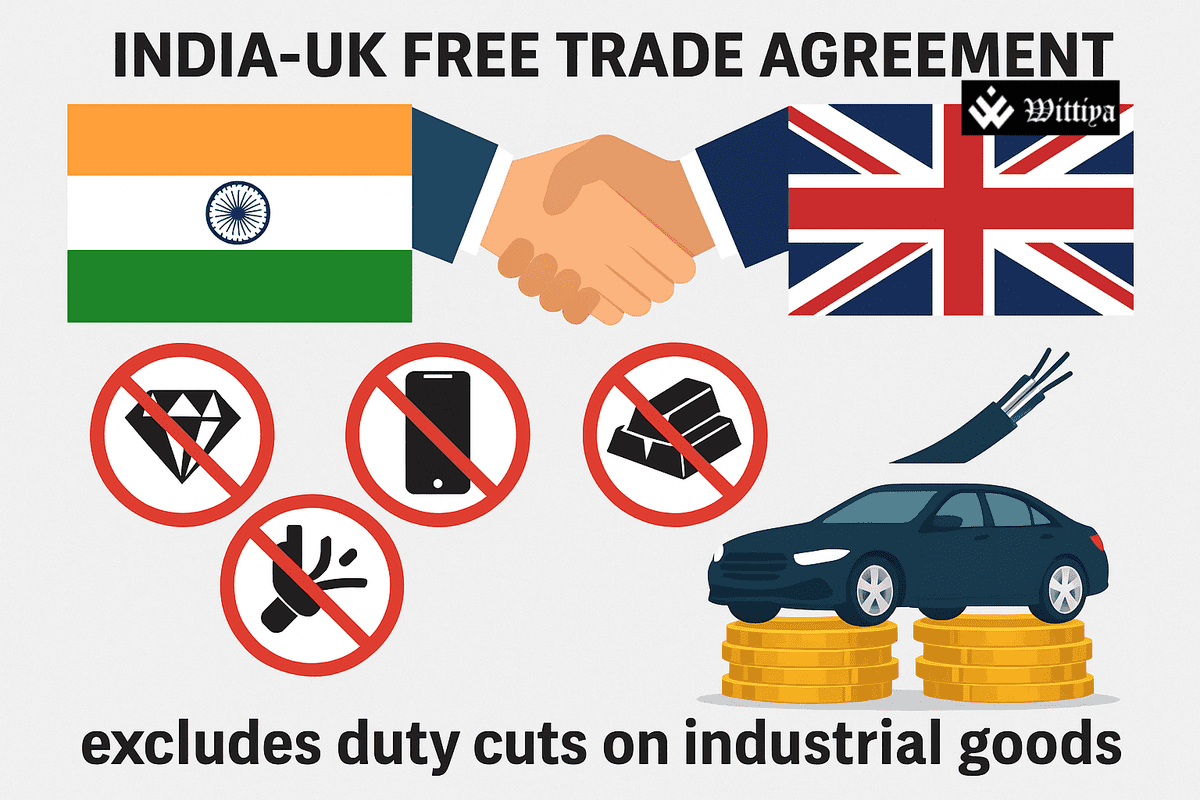India and the United Kingdom finalized a Free Trade Agreement (FTA) with the goal of doubling bilateral trade by 2030. However, India has excluded key industrial products such as diamonds, silver, smartphones, and optical fibres from any import duty concessions. While the agreement offers limited tariff reductions for petrol, diesel, and electric vehicles under specific quotas, India aims to strengthen its automotive manufacturing sector and boost exports, especially in auto components.
India and the United Kingdom have officially signed a Free Trade Agreement (FTA) aimed at doubling bilateral trade by 2030. However, the Indian government has decided not to extend any customs duty concessions to British exporters on a list of sensitive industrial goods including diamonds, silver, smartphones, television camera tubes, optical fibres, and bundled optical cables.
The FTA, finalized after multiple rounds of negotiation, is a significant step toward enhancing bilateral trade but maintains India’s strategic protection over high-value industries. According to an official involved in the process, these items have been placed in the “exclusion list,” meaning no import duty reductions will be offered on them under the FTA.
The deal provides limited duty benefits for British automobile imports. For internal combustion engine (ICE) vehicles and electric vehicles (EVs), India has offered concessions under a pre-defined quota. Only a few thousand EVs will qualify for lower import duties, while ICE vehicles will see a gradual reduction in tariffs over an extended period. No duty concessions will apply outside the approved quotas.
“This agreement maintains the balance between liberalized trade and domestic industry protection,” the official stated. “Sensitive sectors like electronics, precious metals, and critical telecommunications infrastructure components require careful consideration.”
India, now the world’s fourth-largest automobile producer, is positioning itself as a future global hub for vehicle manufacturing. Officials believe the FTA could enhance India’s access to the UK market, especially for auto components, while safeguarding its domestic players from an import surge.
While the UK gains limited entry into India’s growing EV and ICE vehicle markets, the broader message of the agreement is clear: India is opening up strategically, not indiscriminately. With robust domestic capacity in sectors such as electronics and precious stones, India continues to exercise caution in liberalizing trade in areas vital to national industrial goals.
